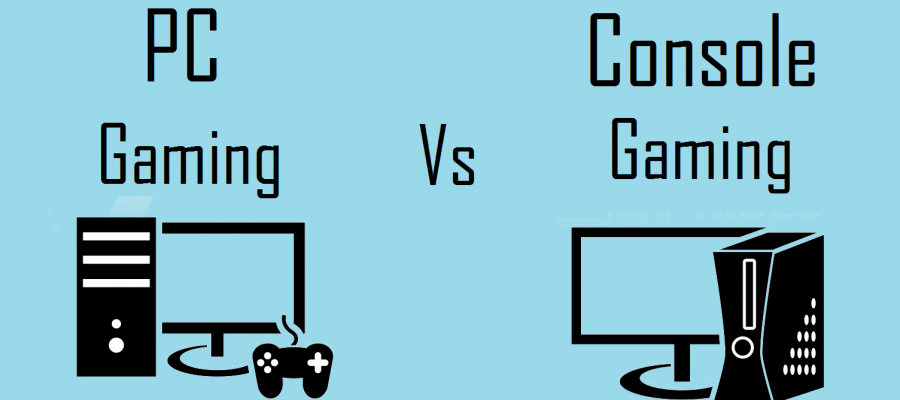Content Table:
PCs or Gaming Consoles – A Debate
The world of gaming has evolved significantly, from classic games like Tetris, Super Mario, and Ping Pong to the massive multiplayer online role-playing games (MMORPGs) that we know today. With the rise of consoles like the PlayStation 2 and Xbox, the debate between PC gaming and console gaming has intensified, especially after consoles gained web capabilities in the early 2000s. While some analysts predicted the decline of PC gaming, it has stood strong against these claims, just as it did in the days of Nintendo. In this article, we’ll explore the pros and cons of both gaming platforms to help you decide which is right for you.
Advantages of Gaming Consoles
1. Cost Advantage
One of the biggest advantages of gaming consoles is the price. Consoles are generally much cheaper than a high-performance gaming PC. For example, you can buy an Xbox for around $200, and it often comes bundled with games. In comparison, a high-end PC graphics card alone can cost as much or more. This makes consoles a more budget-friendly option for gamers who want good performance without breaking the bank.
2. Plug-and-Play Simplicity
Consoles offer a seamless gaming experience. Simply plug it in, pop in a game, and start playing—no need to deal with operating systems, drivers, or software updates. This eliminates the frustration that can come with PC gaming, such as compatibility issues and the dreaded moment when a newly purchased game doesn’t run on your system.
3. Easy Multiplayer Gaming
Consoles make multiplayer gaming easy. Just connect to the internet through a broadband connection (such as DSL or cable), and you’re ready to jump into online games with friends or players around the world. There’s no need to fiddle with game servers or worry about hardware compatibility, making the experience smooth and accessible for everyone.
4. Gaming Comfort
Consoles offer the convenience of playing anywhere in your home. Whether you’re lounging on the couch, in bed, or even in the bathroom, a console can easily be moved to wherever you feel most comfortable. No need to sit at a desk or dedicate space to a gaming setup.
5. Easy Access to Games
Because consoles don’t allow for game copying, retailers are more likely to offer console games for rent. This makes it easy to try out new titles without having to purchase them. In contrast, PC games are often copied, making it harder to find rentals or used copies.
6. Low Learning Curve
Most console games are designed to be easy to pick up and play, with simple controls and a relatively low learning curve. While you might need quick reflexes, you won’t have to spend hours in tutorials just to learn the basics. This makes consoles perfect for casual gamers who want to dive right into the action.
Disadvantages of Gaming Consoles
1. Difficult Upgrades
One of the main drawbacks of consoles is that they are not easily upgradable. If the hardware becomes outdated, you’ll need to buy a whole new console to keep playing the latest games. In contrast, PCs allow you to upgrade individual components, such as the graphics card or memory, ensuring your system stays current without needing a full replacement.
2. Limited Versatility
While consoles are great for gaming, that’s pretty much all they do. PCs, on the other hand, are incredibly versatile. In addition to gaming, you can use a PC for browsing the web, creating content, working, and much more. Some consoles have added features like streaming and web browsing, but they still can’t match the range of applications available on a PC.
3. Lack of Interconnectivity
Another issue with consoles is the lack of interconnectivity between different brands. Gamers on a PlayStation can’t compete against Xbox players in most games, and vice versa. While some titles—such as certain multiplayer games on the PlayStation 2—have started bridging the gap between PC and console players, cross-platform gaming is still limited. In contrast, PC gamers can easily join servers and play with others across different platforms.
Advantages of PC Gaming
Despite the rising popularity of gaming consoles, PC gaming has maintained its loyal fan base, and for good reason:
- Customizability: PCs allow for much more customization, both in terms of hardware and gameplay settings. You can upgrade individual components, tweak graphics settings, and use mods to enhance or change the gaming experience.
- Game Selection: PCs offer a vast library of games, including free flash-based games, indie titles, and major AAA releases. You can play classics like Tetris, Super Mario, and modern multiplayer strategy games without needing to purchase additional hardware.
- Multitasking: PCs are designed for multitasking, meaning you can switch between gaming, work, and entertainment with ease. Consoles, while improving in this area, still can’t compete with the versatility of a computer.
Conclusion: Which Platform is Right for You?
The choice between a gaming console and a PC depends largely on your preferences, gaming needs, and budget. If you’re a casual gamer looking for a simple, plug-and-play experience, a console like the Xbox or PlayStation might be the best choice. However, if you want a versatile system that can handle more than just gaming—and one that you can easily upgrade—then a gaming PC is the way to go.
For serious gamers, nothing beats the latest console for immersive, high-quality gameplay. But if you’re someone who enjoys a broader range of activities on your computer, a good gaming PC may offer more value. Ultimately, the best choice is the one that fits your lifestyle and gaming habits.
Or, for those who want to explore free online gaming, consider visiting sites like Play-Online-Games-Free.com, where you can enjoy classics like Tetris, Super Mario, and more, without needing to download anything. Whether you’re a console enthusiast or a PC gamer, there’s something for everyone in the world of gaming!



